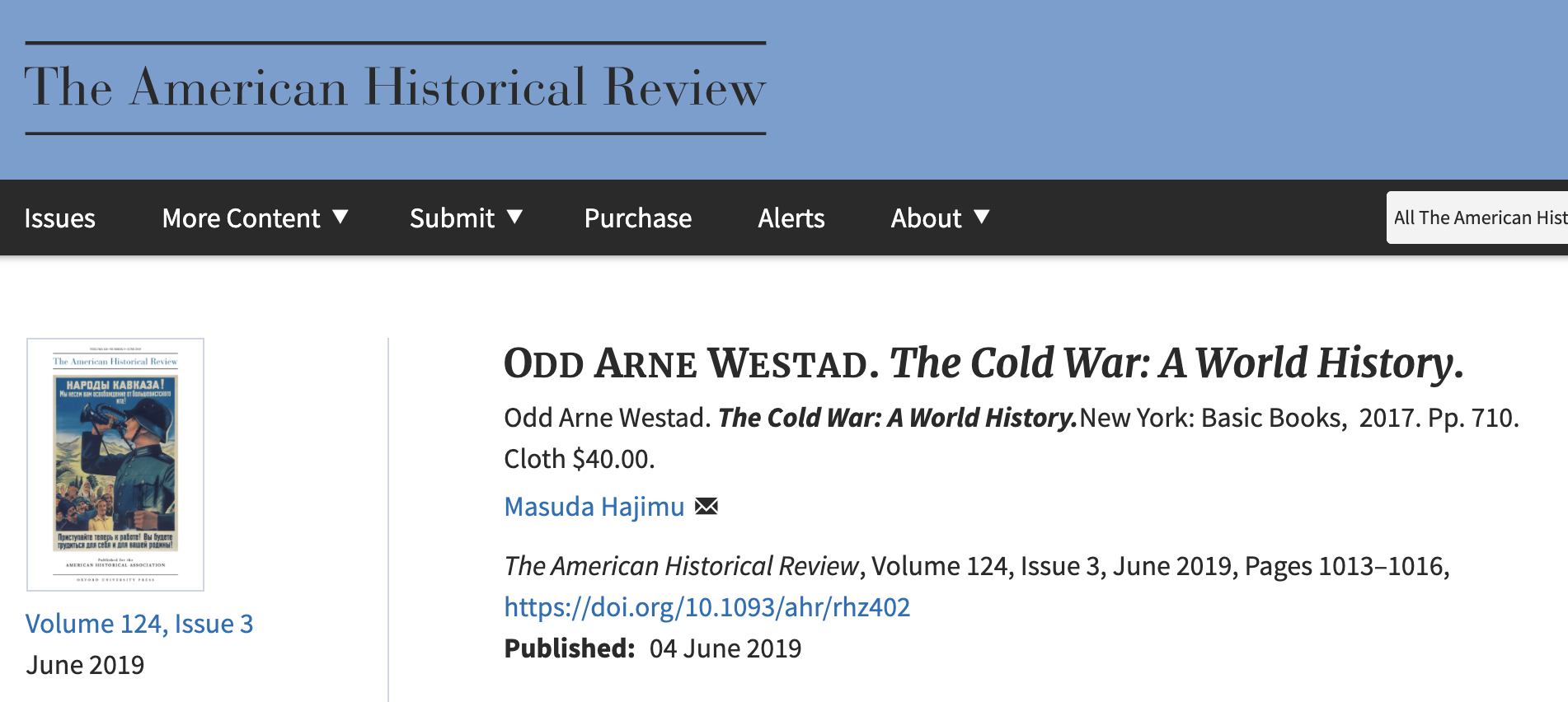Featured Review of The Cold War
Featured Review of The Cold War: A World History by Odd Arne Westad (New York: Basic Books), American Historical Review 124:3 (June 2019), 1013–1016.
“It was a bit like buying a car,” wittily writes Odd Arne Westad, historian and author of The Cold War: A World History. “In my heart, I would like a bit of Volvo, and a bit of Ford, and a bit of Toyota. But I cannot have that, since manufacturers refuse to sell their new cars in parts . . . The Cold War was a bit like that. Most people had to take what was available, even if it conflicted with specific needs or even with common sense” (628). This metaphor quite nicely captures the author’s positioning and attitude toward the Cold War. While many Cold War books have been written from the perspectives of the seeming “manufacturers”—the two superpowers, and particularly the United States— Westad approaches it from a buyer’s viewpoint, from outside of the centers. The metaphor also allows a significant degree of agency to the buyer (Third World leaders), while still alluding to the high-handed nature of manufacturers’ (superpowers’) attitudes and offerings. Finally, the metaphor suggests that the choices presented—capitalism and socialism—were real, competing alternatives, neither of them a folly doomed to failure.
Approached this way, the result is a well-balanced, multi-perspectival, and truly global history of the Cold War, narrated not only from Washington, D.C., but from Moscow, Beijing, New Delhi, and many other places. While Westad is already well known for his prizewinning The Global Cold War: Third World Interventions and the Making of Our Times (2005), which has been similarly praised for its global scope, this new book audaciously takes on the much longer time frame from the 1890s to the 1990s, adding a new aspect to the historiography of the Cold War. As such, it reaches the brink of perfection of the genre of “Cold War history.” Yet, as a historiographical milestone in the field, the book seems not just to represent its perfection; it embodies the field’s limits, signaling that the historiography of the Cold War is truly at a crossroads.
Read full article: https://academic.oup.com/ahr/article-abstract/124/3/1013/5509792

